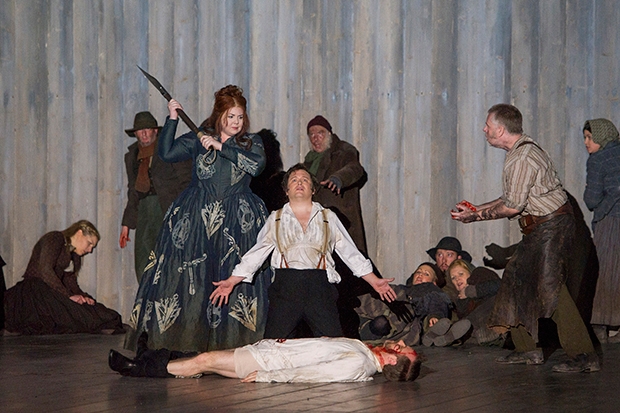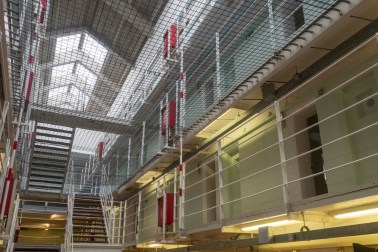The three most moving, transporting death scenes in 19th-century opera all involve the respective heroines mounting a funeral pyre — partly, no doubt, a matter of operatic convention and fashion, but also recalling opera to its duty as a rite of purification. Berlioz’s Didon in Les Troyens, like her creator, is so relentless in her grasp of the truth that she fails to achieve anything but a vision of Carthage overcome by Rome, and ends in despair and execration. Brünnhilde in Götterdämmerung rides into Siegfried’s pyre in a state of ecstasy, imparted to the audience with all Wagner’s unlimited capacity for exaltation. In Bellini’s Norma things are more complicated: Norma’s faithless lover Pollione joins her on the pyre in a shared purgation while the Druids regard them both with horror. It would be absurd to say which of these is the most profound as well as thrilling; they offer starkly differing views on the dramatic possibilities of willing death. What is clear is that Norma is up there with the other two, and can offer, in a performance of the stature of English National Opera’s new production (previously seen in Leeds and elsewhere), the kind of experience that one goes to opera for years in the hope of seeing. It’s rare for an audience to be so still and so captivated, especially a first-night Coliseum audience. For once I felt as if I were taking part in a shared experience.
The first indication that it would be an exceptional evening was in the opening chords of the Overture, a belligerent and energetic piece with a surprising ethereal coda, conducted, as was the whole opera, with masterly pacing and fluid tempi and plenty of rubato by Stephen Lord, and immaculately played. The solemn atmosphere is immediately established by the chief druid’s aria, delivered powerfully by James Creswell. Having seen the production in Leeds four years ago, I was prepared for the resetting of this drama of occupying Romans versus rebellious druids in the 19th century and the USA, though the plot summary and the translated text stick to the original terms of the piece. So the Romans arrived in top hats and morning coats, while the druids suggested a population conceived by Fenimore Cooper. The scenery is an immense horizontal dead oak trunk, and a cheap set of dining-room chairs. The central characters often stand on the chairs, Pollione teeters along the trunk anxiously, presumably to demonstrate that they are risk-takers. But considering what the director Christopher Alden is capable of, one must be grateful for small idiocies. The singers are well directed, and their location soon forgotten.
The young Marjorie Owens was making her UK debut in the title role, and as the performance progressed it became clear that she may be the Norma we have been waiting for — for many decades. Even her entrance was impressive, and ‘Casta diva’ was both beautiful and genuinely a prayer — though Owens’s enunciation, like that of most of the cast, was vague. She is decidedly a soprano Norma, the starkest contrast to Bartoli’s recent assumption of the role. Jennifer Holloway made an ideal Adalgisa, and their duets, particularly the Act 2 one, were ravishing, music to send you into a trance. Pollione, who took to drink in Act 2 — a side of his character that the librettist and composer overlooked — was Peter Auty, strong and attractive of voice, who gave an almost unnecessarily unsympathetic interpretation. The ENO chorus was magnificent, the sheer thought of their being laid off for lengthy periods an indication of how criminally stupid or stupidly criminal the bureaucrats responsible are.
Really, in a performance of this cumulative grandeur (the immense final scene was almost unbearably moving) detailed critique seems unnecessary. This is a staggering achievement, a vindication of this questionable art form, to be experienced by all believers and especially by all doubters.






Comments